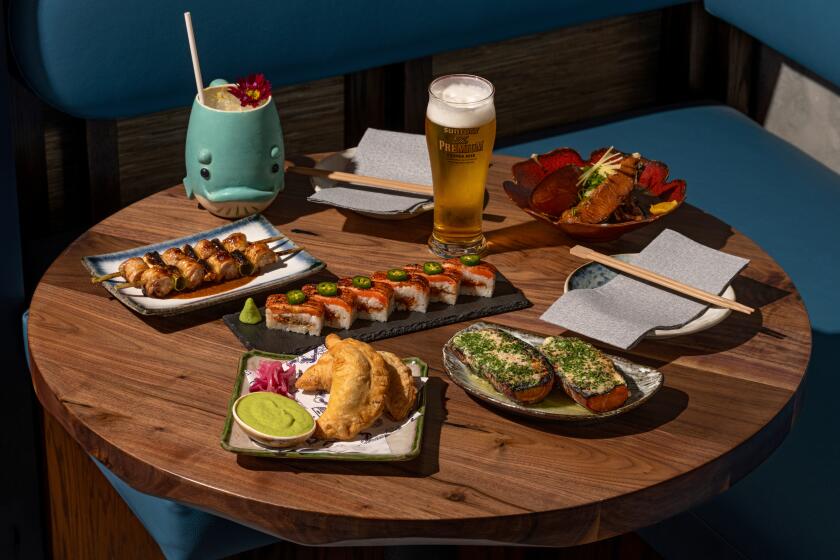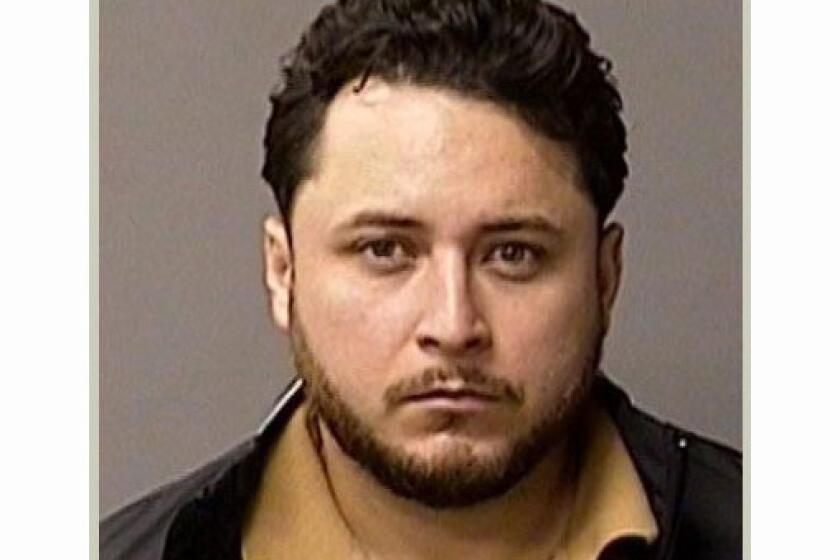Q&A: What does it mean to be a chef in Los Angeles in 2017? We asked a few of them

Chefs talk about what it means to work in the culinary world of Los Angeles. Esdras Ochoa, chef at Salazar and Mexicali Taco & Co; Monica May, chef and co-owner at Nickel Diner; Dave Beran, former executive chef at Next in Chicago now living in Los
What’s it like to be a chef in Los Angeles these days? This is, of course, an open door of a question: It can mean a thousand things to a thousand cooks. Running a restaurant has never been an easy job, whether you have a fine dining palace or a family storefront, whether you’re cooking food with its origins in Middle America or thousands of miles away. So we thought we’d ask the folks behind the stoves at six L.A. restaurants, from a Skid Row diner to an upscale Vietnamese-French restaurant, to a restaurant that hasn’t even opened yet to a family-run Indian place whose chefs just finished popping up at Coachella. It’s a long conversation, both in these pages and in this city, and we’d love to continue it. These interviews have been edited for length and clarity.
Esdras Ochoa
Ochoa is the chef at Salazar, a Sonora barbecue restaurant in Elysian Valley, and Mexicali Taco & Co, a taqueria in downtown L.A.
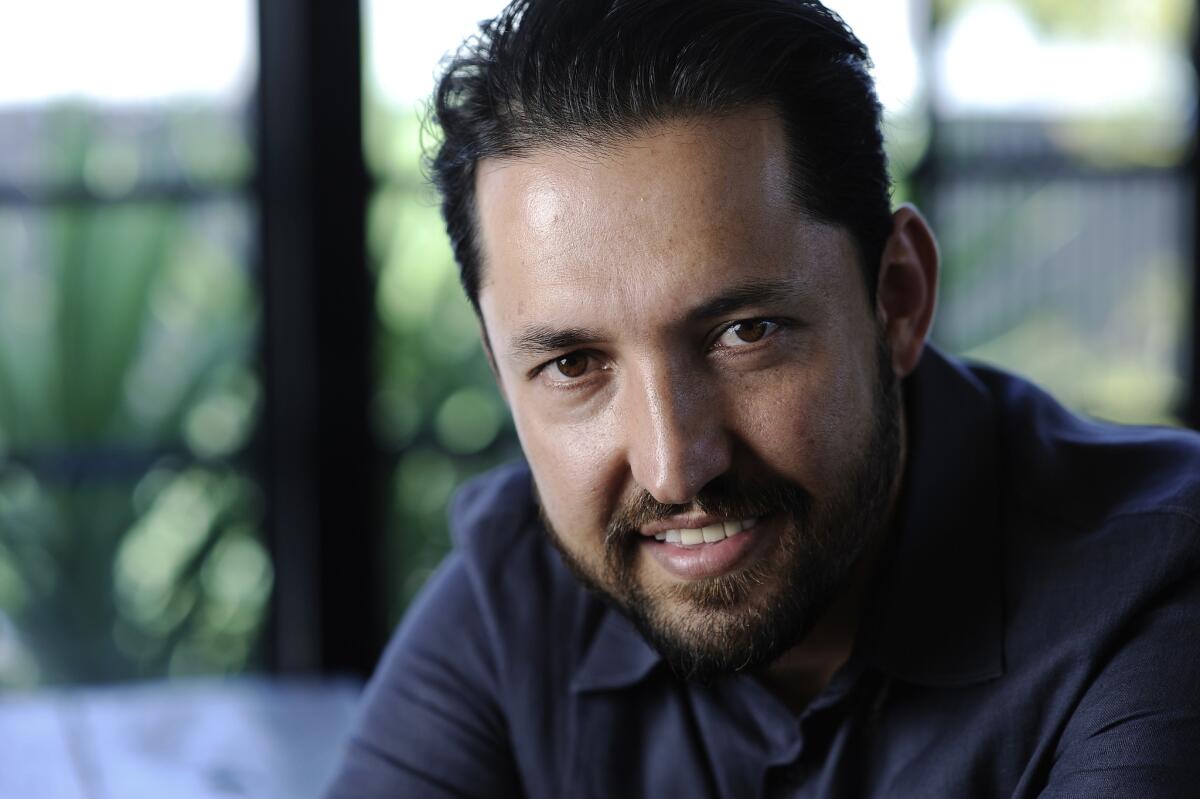
Ten years ago, it was about who has the best burritos and tacos — not anymore.
— Esdras Ochoa
I started in 2009 selling tacos from an empty parking lot. Fast forward to 2017: I’m a totally different chef, different cook. L.A. is a city of opportunities, a city of dreams. You come here to be a movie star, to become a musician — now it’s a time to become a great chef. And as a chef, you have a story to tell with your food and you share it with the rest of the city. At the mom-and-pop places, the restaurants, the bars, everyone has a story to tell. We have a melting pot of so many nationalities, so many cultures, so many flavors — if you share a good story with your food, it shows in your food. I came from Mexicali, from Northern Mexico, from Sonora, and the kind of tacos I was cooking on that grill represented where I was from: the carne asada, the salsas, the corn tortillas. The competition level as a Mexican chef in L.A. is so fierce: It’s the city with the best Mexican food in the world outside of Mexico. Ten years ago, it was about who has the best burritos and tacos — not anymore. Now I’m moving to Hong Kong next month to continue that story — I’m opening a restaurant in Hong Kong this summer. Of course a Mexican restaurant; that’s what I represent. Mexicali is a city that was founded by Cantonese people; never in a million years did I think that I’d flip it around.
2490 Fletcher Drive, Los Angeles, salazarla.com | 702 N. Figueroa St., Los Angeles, (213) 613-0416, mexicalitaco.com.
Jonathan Gold's review of Salazar »
Monica May
May is the chef and co-owner at Nickel Diner, located just around the corner from Skid Row.
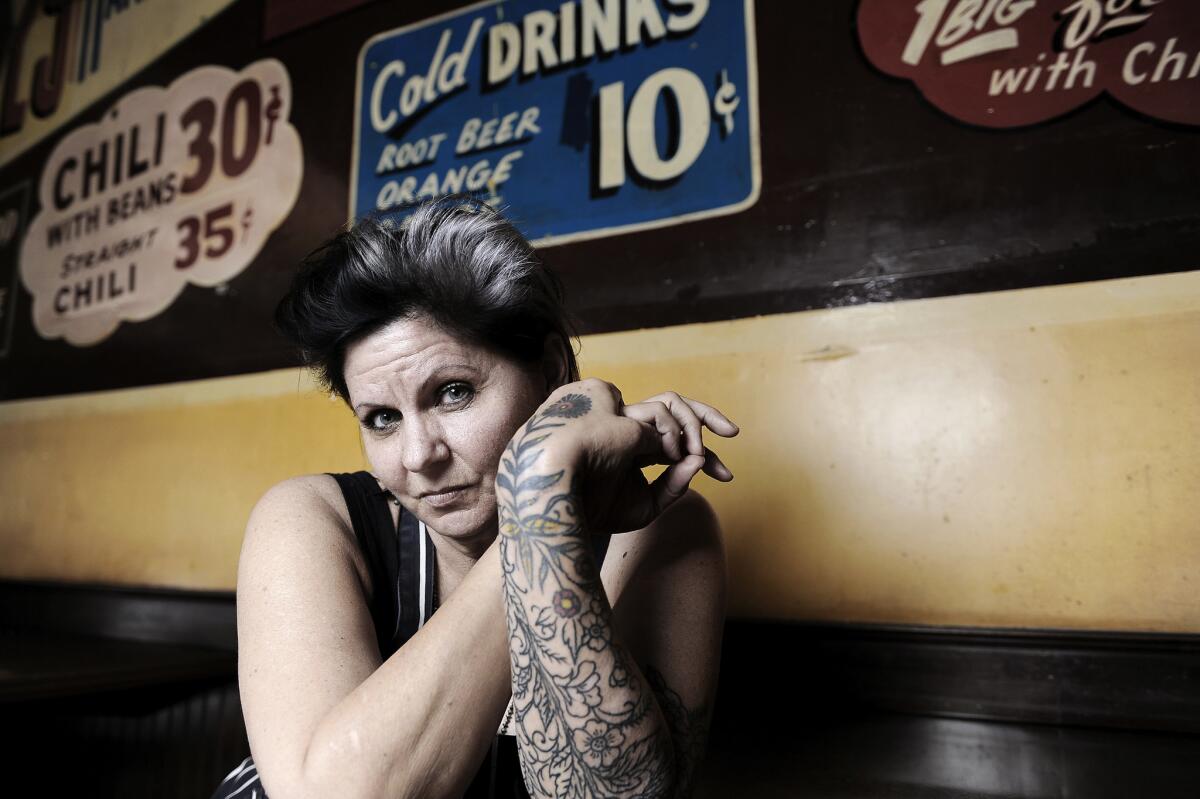
What makes cooking in L.A. so special is the extraordinary diversity that we have in our city, with people and with culture and as a chef. And what I feel is so important here at the Nickel is that we can feed all of those people. Right now everybody’s a chef, everybody’s opening a restaurant. At the end of the day we’re cooks and we feed people. There’s always going to be the choir that’s being preached to: They already know the cool stuff, they already know what they’re supposed to be eating. My revolution is feeding those people who don’t have access. So when you come here, there’s strawberry jam on the table. I go every week to the farmers market and I make 40 pounds of strawberry jam and it’s there, it’s on the table, and it’s free. All you have to do is order a piece of toast. And when you taste it, now you know what strawberries taste like. For people who don’t have access to that, maybe now they can make a more informed decision. And it’s those small moments that make my life as a chef. You open up people’s minds and hearts with food. That’s my reward, because this business is so hard, and we’re constantly struggling against the rent and real estate values and labor and just the craziness of the food market right now. Then somebody comes in and says, “You made my day, this is what I wanted to eat today. This is the first thing I wanted to eat when I got out of the hospital; this is the first thing I wanted to eat, I just became a citizen.” You know: tears.
524 S. Main St., Los Angeles, (213) 623-8301, www.nickeldiner.com.
Nickel Diner on Jonathan Gold's 101 Best Restaurants »
Dave Beran
Beran was the executive chef at Next in Chicago. He plans to open his first solo restaurant in L.A. soon.
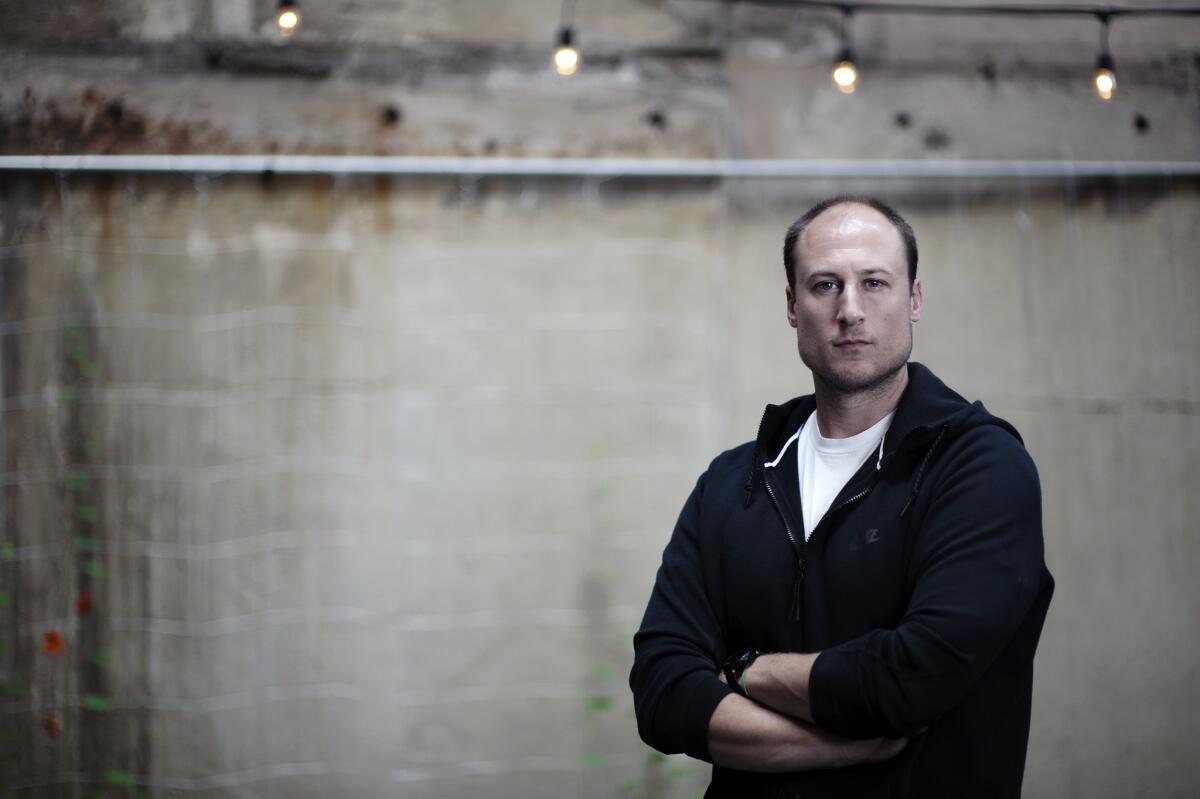
I’m still trying to figure out what being a chef in L.A. really means. I’ve lived here for almost a year now, and I’m just starting to scratch the surface of what the city really is. It’s the whole “Lost in Translation” scenario: You come here and nothing makes sense initially. You talk to someone like Nancy Silverton and she says, “I don’t even bother explaining L.A. to people anymore.” They get it or they don’t; you can’t justify the city. You have to take that extra left turn, or that extra right turn. I really think thus far being a chef in Los Angeles is more a study of understanding the neighborhoods and taking the effort to invest in the city. There’s markets every day, and you start to learn the farmers. Without that commitment, that interaction, the city’s just a big suburb. One of the biggest draws of L.A. — yes, the weather’s amazing — was the produce. The first time I walked through the market I saw things I’d never seen before. It wasn’t like there were things that aren’t in Chicago, but more — here are these 12 varieties of strawberries that are available in early June, and how do you deal with that? You have respect for the seasons and you have to understand them, but now you can actually do these combinations and you can think about food in a different way because there’s not that two-week finite window.
Sara Kramer and Sarah Hymanson
Kramer and Hymanson are the chef-owners at Madcapra, the falafel stall in Grand Central Market, and Kismet, a Middle Eastern restaurant in Los Feliz.
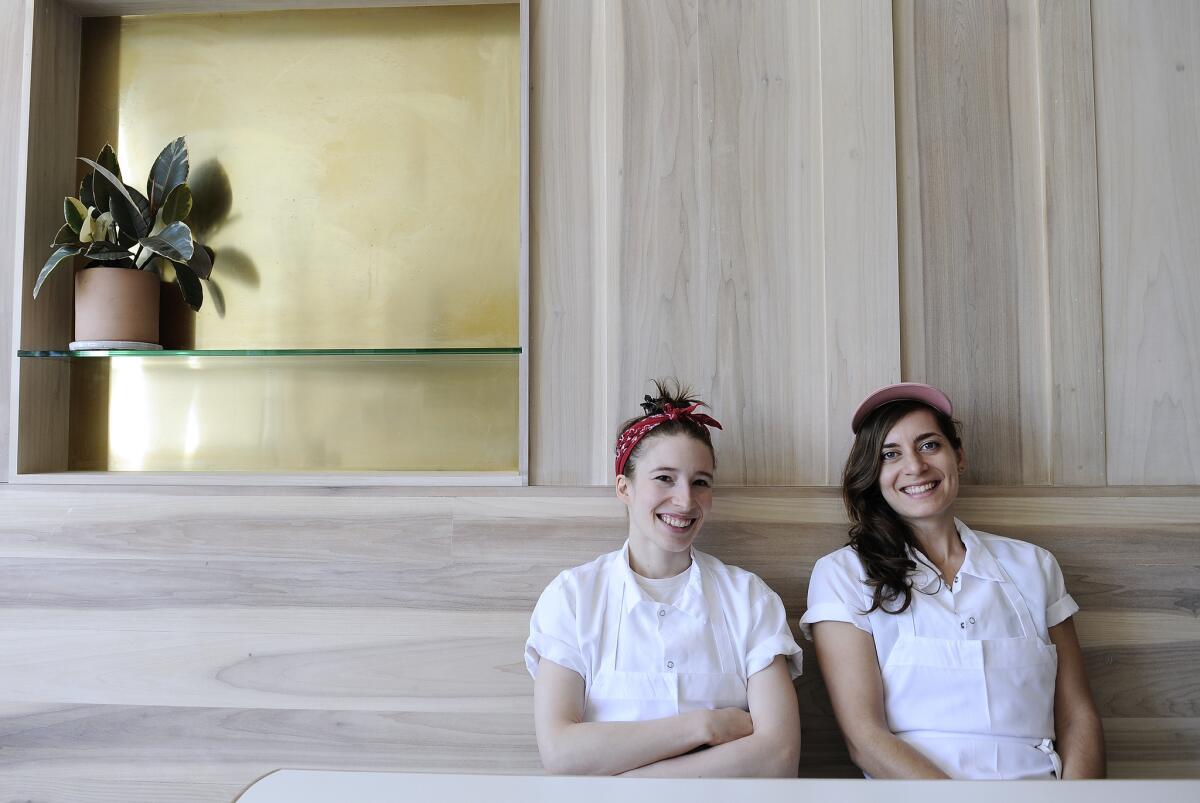
People here really have an awareness of all the different styles of cuisine and it’s amazing to be welcomed within that
— Sarah Hymanson
SK: I feel like I get to really participate in the legacy of Los Angeles. This is very much a city of migrants — the whole country is, but the city really feels like it came along much later, in terms of westward expansion, and it feels like there’s still so much development happening, and we’re part of this legacy of migration. There’s something really cool about that, especially in this moment; that’s not something I experienced cooking in New York, even though it’s also a city of migrants. This feels like something completely different, being part of a broader community, a very open community. There’s a spirit of generosity. L.A. is quite patchy — people have a lot of claim over certain neighborhoods.
SH: People here really have an awareness of all the different styles of cuisine and it’s amazing to be welcomed within that. The produce is amazing, the community of farmers and the farmers market system is incredible, and the way it functions in the restaurant scene is very unique. The farmers markets in New York are incredible, but it has a different function here. That space is also social for chefs. There’s not a huge amount of public space in L.A., and people make relationships with restaurants as a kind of public space.
317 S. Broadway, Los Angeles, (213) 357-2412, www.madcapra.com. | 4648 Hollywood Blvd., Los Angeles, (323) 409-0404, www.kismetlosangeles.com.
Jonathan Gold's review of Kismet »
Bryant Ng
Ng is the chef-owner at Cassia, a French-Vietnamese restaurant in Santa Monica.
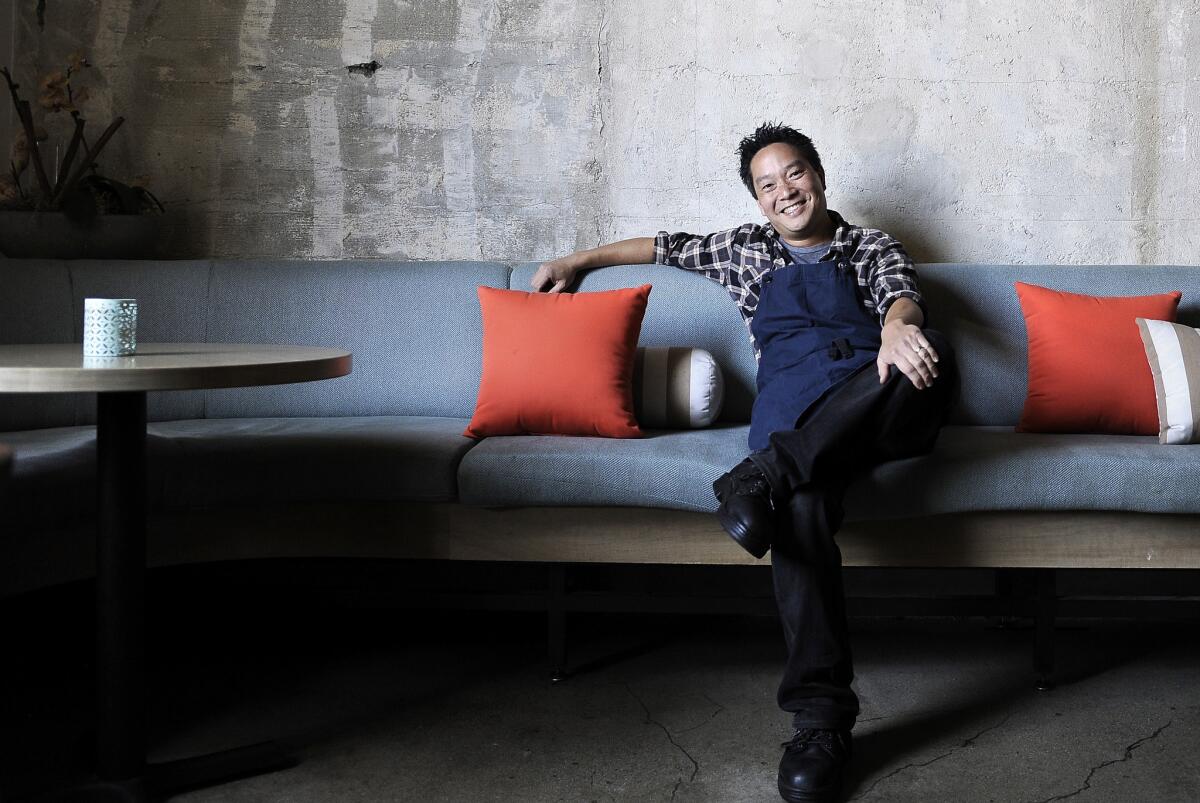
I don’t really even think of myself as a chef; it’s just my chosen profession. The thing that makes me happiest about L.A. is its diversity; it’s because of the immigrant culture that we have here that there’s so much going on in terms of food, so many layers of immigrant culture that give L.A. its flavor. For me, just to be a part of that dialogue, it’s like being a bridge. That’s an honor. It’s also about honoring my parents and my grandparents, who are immigrants from Asia. Let me tell you a story. My maternal side comes from Southern China and they used to own detergent factories. During the Chinese civil war, a lot of people left, so they moved to Hong Kong and then to Santa Monica, of all places. When they come over here, what are they going to do? Do they have the capital to even open a detergent factory? No. They had to do something practical. This is the late ’50s, and Polynesian, Cantonese food, tiki was kind of in vogue. So they opened a restaurant called Bali Hai — there’s fire dancers, maybe 200 seats, a tiki bar; my uncle was the bartender, my eldest uncle was the chef, it was a family business. Why did they do that? Because they had to: It was a matter of survival and circumstance. It’s such a luxury for me now, a privilege, because they worked so hard to do that, so that I can. I’m sitting here doing what I love doing.
1314 7th St., Santa Monica, (310) 393-6699, www.cassiala.com.
Jonathan Gold's review of Cassia »
Pawan, Arjun and Nakul Mahendro
The Mahendro father and sons (Pawan is the father) are the chefs at Badmaash, a modern Indian restaurant in downtown L.A.
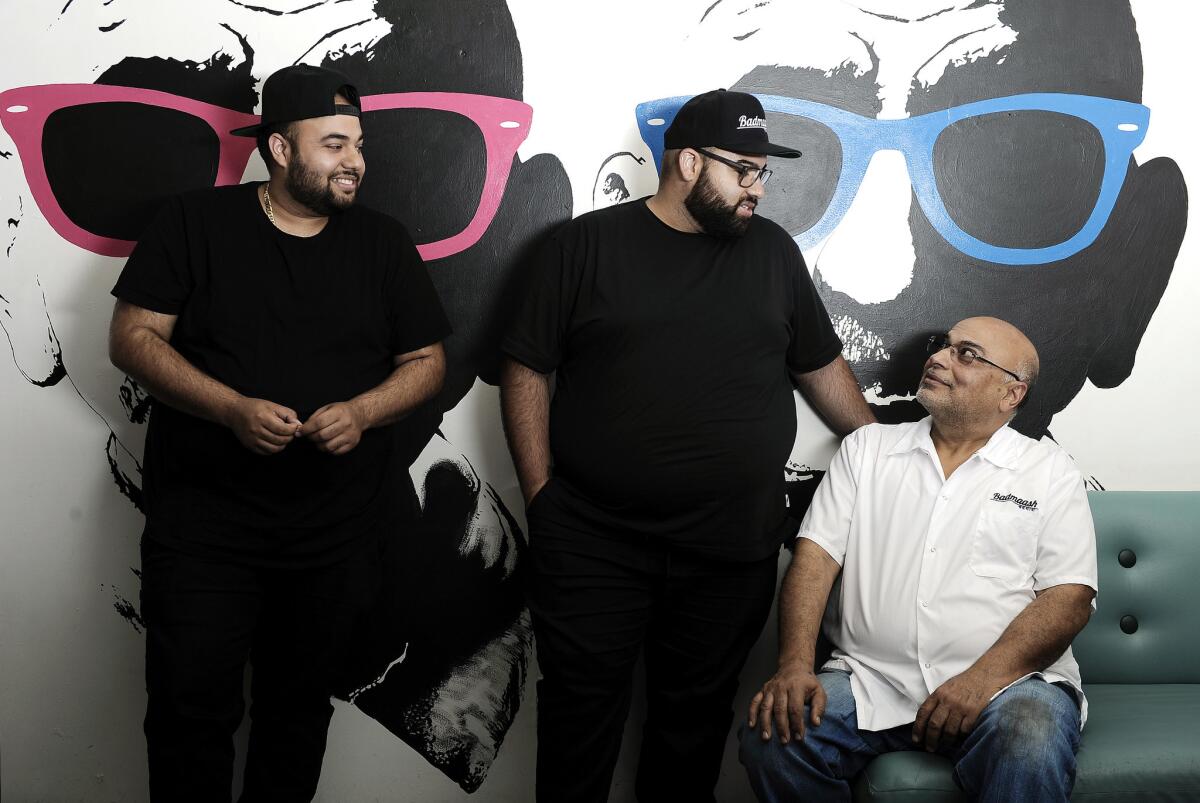
PM: I’m very happy to be here; the weather is great. One of the biggest challenges that we’re facing as chefs is the labor pool: It’s difficult to find staff, and once you find them you have to train them, and by the time you train them, it seems that it’s time for them to move on. From that standpoint, it’s a very challenging city. We visit all these farmers markets, and I think that’s amazing — but everything comes with a price. I’ve been a chef in India, in London, in Toronto — Canada was probably the best, probably because of the open-minded immigration policy.
AM: We’re in a really cool time: We’ve been doing the same thing every day but the culture and the way we’re perceived in public has completely changed. I remember being head busser at this restaurant in Toronto and I was embarrassed; at that time it wasn’t so cool to work in a restaurant. Now you’re in this club where everyone who’s not in it is trying to get in it. There’s this crazy perception that when we’re dehydrated we drink Cristal. When we’re hungry we eat imported beef or something. But we’re still here, 14 hours a day, if we’re not on the floor we’re in the office sweating because there’s no air conditioning.
NM: We are living in an amazing time for people in hospitality. Working in this business, whether you’re a dishwasher, a busboy or have been a chef for 50 years, you quickly come to the understanding that there are two types of people on this planet: regular people and restaurant people. There’s still a little bit of disparity, because from the outside looking in, what it means to be a chef is going to the farmers market and smelling the basil and bringing it back and putting it with the burrata that was flown in from Italy — and there’s that and we could get real Netflix-y about it, but we’re still trying to make people happy through food.
108 W. 2nd St., No. 104, Los Angeles, (213) 221-7466, www.badmaashla.com.
Eat your way across L.A.
Get our weekly Tasting Notes newsletter for reviews, news and more.
You may occasionally receive promotional content from the Los Angeles Times.



